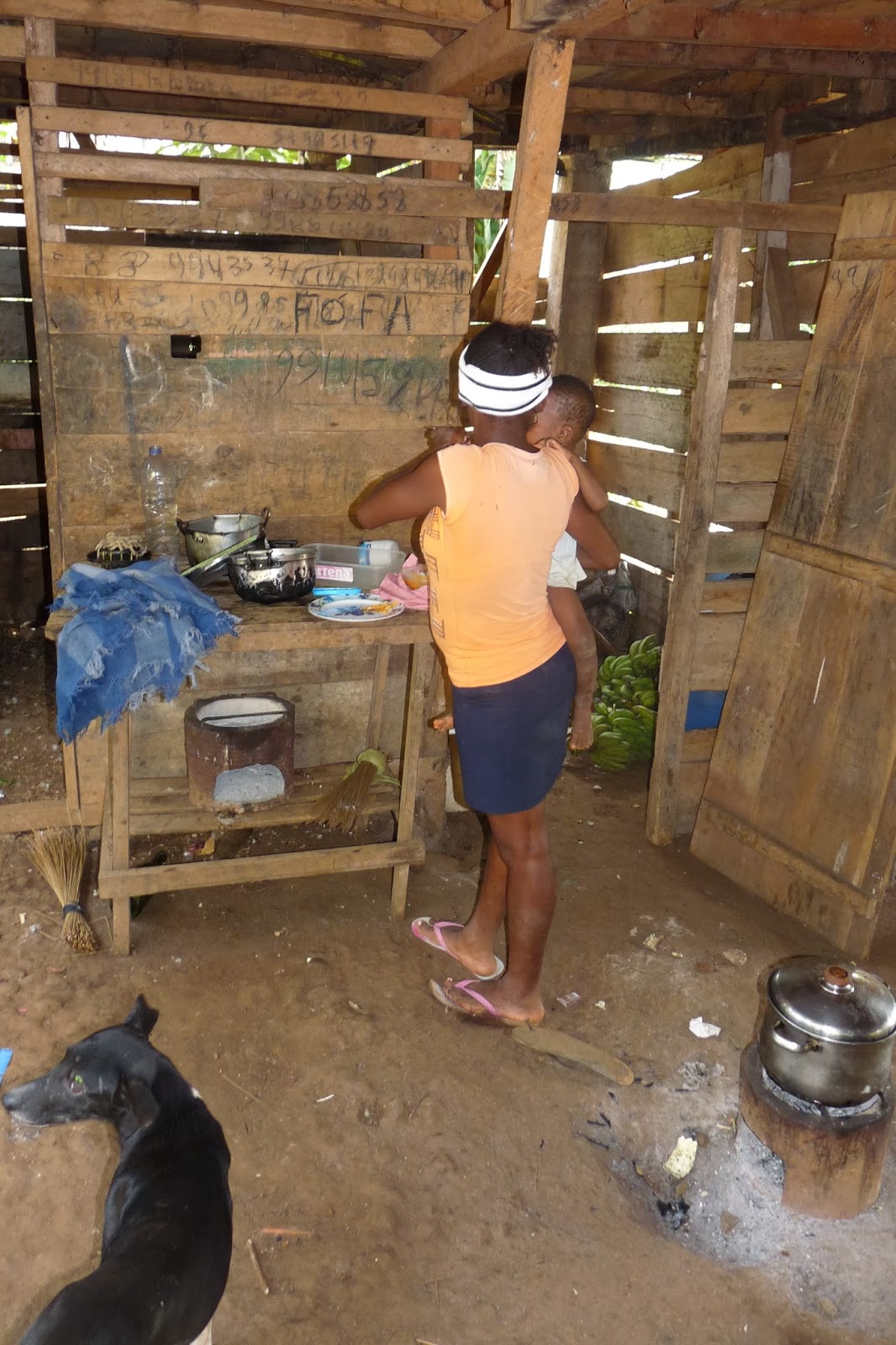Outside the cities, children's chores include carrying water, sometimes gathered firewood, and whatever else the household might need. Walking and carrying is the primary transport for pretty much everything.
 These are friends, part of a family who adopted me when I was working in their country. It's a former Portuguese colony, independant since 1975; much of the country, like the street and houses you see here, has been unattended since then. The economy does not yet support the routine maintenance needed.
These are friends, part of a family who adopted me when I was working in their country. It's a former Portuguese colony, independant since 1975; much of the country, like the street and houses you see here, has been unattended since then. The economy does not yet support the routine maintenance needed.The girls here are playing with my camera; I'll print the pictures and deliver them next trip.
Today we're off up the mountainside to visit friends of the family. They plan such occasions for when I'm around because I have a truck and it's a long way away from the city.
The family is perhaps seven adults, as many teens, and a bunch of preteens. A matriarch leads the family, sort of. Two sons were the primary source of income until one died at age 25. Daughters and their husbands try to help out, but they're stretched pretty thin. The remaining son is a produce reseller in the city's central marketplace. A household income of $65 per month is the norm. Prices for gas and goods are higher than in the U.S. or E.U.
Folks here are fortunate in that the land produces a variety of foods. Bananas, jacque fruit, breadfruit, mangoes, and more. It's difficult to get protein, but you won't starve.
Fishing is the primary protein source, but China and Europe have depleted the fish populations through illegal fishing.
 |
Mom is the one actually working here. The kids
are just pretending to help so they can be in another picture! |

 |
On the country's southern coast, a gorgeous beach;
difficult to reach from the tourist regions farther north, you have to get one of the local folks to show you the way. |
Oil and wealth may be in their future, but it's a bit of a poison pill. None of the oil-producing African nations have avoided the corruption and deadly disruption such wealth brings. Until then, they're the nicest folks you could hope to meet, and their country has virtually no crime or violence.
Here at home, it's 12 degrees and snowing today; it's 85 and sunny there. I'd rather be in Africa.
Drop me a note if your interested in joining the fun.
Drop me a note if your interested in joining the fun.















